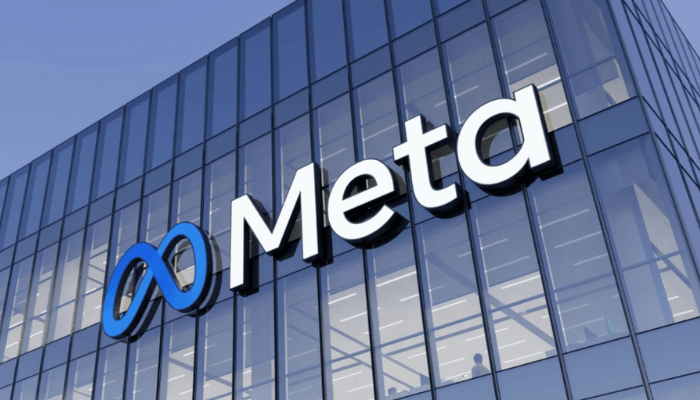The Competition and Consumer Protection Tribunal has reserved judgment in an appeal filed by Meta Platforms Inc., the parent company of Facebook and WhatsApp, against the Federal Competition and Consumer Protection Commission (FCCPC).
Meta is challenging a $220 million penalty imposed by the FCCPC, which accused the company of violating Nigeria’s competition and data protection laws.
The three-member panel, led by Justice Thomas Okosun, adjourned the judgment to a later date, which will be communicated to the parties involved after hearing their oral arguments.
In its appeal, Meta contends that the FCCPC’s decisions, penalties, and demands are vague, excessive, technically impossible to implement, and unsupported by Nigerian law.
On July 12, 2024, the FCCPC imposed a penalty of $220 million on Meta and WhatsApp based on a joint report that alleged multiple, repeated, and ongoing violations of the Nigeria Data Protection Regulation, 2019 (NDPR).
The Commission claimed that Meta engaged in abusive and invasive practices against data subjects/consumers in Nigeria, such as collecting personal data without consent.
Additionally, it alleged that Meta discriminated against Nigerian data subjects by treating them disparately compared to users in other jurisdictions.
In the report, the Commission alleged that Meta engaged in conduct over a protracted period of time that constitutes multiple and repeated infringements and continuing violations of the Federal Competition Consumer Protection Act, 2018 (the “FCCPA”).
FCCPC also claimed that Meta engaged in abusive and invasive practices against data subjects/consumers in Nigeria, such as appropriating personal data or information without consent.
It also stated that the violation included discriminatory practices against Nigerian data subjects/consumers or disparate treatment of consumers/data subjects compared with other jurisdictions.
The joint report further alleged that Meta “failed to allow users to withdraw consent from the privacy policy, contrary to the NDPR.” The difference in the treatment meted out to Nigerian users compared to Europeans was considered discriminatory since the NDPR was modelled after the EU’s General Data Protection Regulation (the “GDPR”).
The NDPR “coerced” users into updating the application through repeated notifications, ” threatened” to withdraw access to the application, and subsequently limited functionality for users who failed to update the application.
However, the social media platforms, in their appeal, argued that the FCCPC’s $220 million penalty should be overturned because it is a vague directive, unjustifiable data-sharing order, and procedural error.
The company claims that FCCPC did not consider the operational complexities inherent in the WhatsApp service, thereby imposing an impossible burden on the appellants.
Meta further submitted that Nigerian users are free to reject its privacy policy by declining to accept WhatsApp’s Terms of Service and not using the WhatsApp service.
The appellants also argued that the FCCPC denied them a fair hearing by imposing a hefty penalty without giving them an opportunity to understand how the penalty would be calculated and to respond to the calculation of the proposed amount.
Also, recently, human rights lawyer Femi Falana (SAN) slammed a $5 million suit on Meta Platforms Inc. over an alleged invasion of his privacy.
In the suit filed before a Lagos State High Court in Ikeja, Falana is demanding money for the alleged publication of a false video about his health status by the United States of America-based organization, which has published his image and the name he built over the years.
Falana asserts that the publication and the video were released on the organization’s platform—www. Facebook.com—are “false, inaccurate, misleading, and unfair,” violating Section 24(1)(A) and (E) of the Nigeria Data Protection Act 2023.
As a result, Falana is seeking a declaration from the court stating that the “respondents’ continued publication of the applicant’s name, still and motion images, and the purported voice on a page and video titled ‘AfriCare Health Centre’ on their platform—www. Facebook.com—which suggests that the applicant suffers from a disease known as ‘Prostatitis,’ constitutes an invasion of the applicant’s privacy as guaranteed by Section 37 of the Constitution of the Federal Republic of Nigeria, 1999.”
Furthermore, he requests an order requiring the “respondents to immediately remove, erase, and delete the video titled ‘AfriCare Health Centre’ from their platform—www.facebook.com.”
In the video that carries his name and image, he is purported to have said: “My name is Femi Falana, and I have been battling prostatitis for over 16 years. At the age of 50, I was diagnosed with this condition. Every day, I faced pain, discomfort, and constant fatigue. I had trouble urinating, lower back pain, and other symptoms that made it difficult to live a full life. Despite consulting the best urologists in the country, no one could offer me effective treatment. I was prescribed numerous medications, physical therapy, and even surgery, but these methods only temporarily alleviated the symptoms.”
He lamented the wrongful publication, stating that it has dramatically prejudiced him, as his health is part of his private life, and he has never suffered any such condition.
No date has been fixed for the hearing of the suit.
